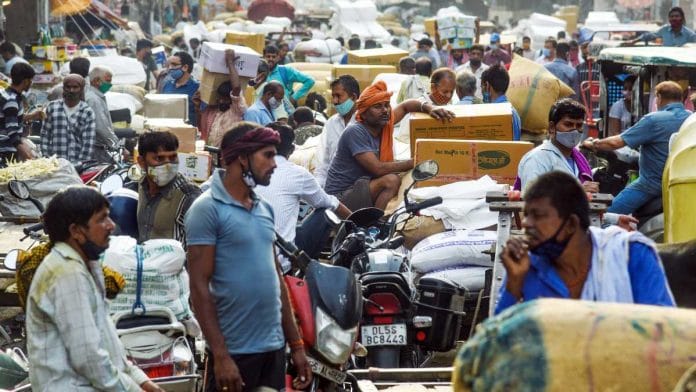The humble face mask has come to symbolize the struggles of recent years and the complexities of battling the pandemic.
Disposable 3-ply, cloth, surgical or respirator – no matter what type of face mask you choose, scientific evidence suggests that face coverings reduce the transmission of COVID-19.
“All types of face coverings are, to some extent, effective in reducing transmission of SARS-CoV-2 in both healthcare and public, community settings,” says Public Health England (PHE). “This is through a combination of source control and protection to the wearer.”
Even so, different countries have different legislation on and attitudes toward face masks. By early 2021, 96% of people in Spain said they always wore a face mask outside, while hardly any in the Nordics wore a face mask at all, according to a survey from YouGov.
Since masks are a critical tool to stop the spread of COVID-19, scientists are using technological advancements to make them even more effective at reducing transmission.
Ostrich antibodies
Researchers in Japan are using ostrich antibodies to detect COVID-19 under ultraviolet light, something they say will help pick up asymptomatic cases.
Yasuhiro Tsukamoto and his team at Kyoto Prefectural University decided to design the mask based on previous research that revealed ostriches have a strong resistance to COVID-19.
The mask’s filter is coated with ostrich antibodies. Test subjects wore the masks for eight hours before spraying the filters with a chemical that glows under ultraviolet light if the virus is present. The team is currently working on face masks that will glow automatically.
Japanese researchers have developed masks that use ostrich antibodies to detect COVID-19 by glowing under ultraviolet light https://t.co/NXL6RmLUFQ pic.twitter.com/syfT5n4dsu
— Reuters (@Reuters) December 10, 2021
Also read: Mask use in India below 60%, even lower than months before Covid 2nd wave: VK Paul
Microfluidics on nanomaterials
Scientists in the UK are using nanomaterials to create a face mask designed to stop the spread of COVID-19.
The team at the University of Aberdeen is using a technology called microfluidics, which would harness silver nanoparticles to turn masks into active barriers and increase their efficiency.
"Game-changing" Technology to Improve Covid-19 Face Mask Protectionhttps://t.co/M7kGq5rWOr#Game_changing #Technology #Covid_19 #Face_Mask #University_of_Aberdeen #mask #StatNano #NBIC #nanotechnology pic.twitter.com/Py1aHm3qvP
— Nano Statistics (@StatNano) April 29, 2021
Freeze-dried cellular machinery
In another attempt to bolster what masks can do, engineers at MIT and Harvard University are embedding small, disposable sensors to detect COVID-19.
The face mask aims to diagnose the wearer with COVID-19 within 90 minutes, based on freeze-dried cellular machinery that the team has previously used for paper diagnostics of Ebola and Zika. The results are displayed on the inside of the mask for user privacy. In a new study, the researchers incorporated the sensors, not just into face masks, but also lab coats.
New face mask prototype can detect Covid-19 infection: The sensor technology could also be used to create clothing that detects a variety of pathogens and other threats. https://t.co/o3v81tPfHs pic.twitter.com/YxCRi0cyd2
— Massachusetts Institute of Technology (MIT) (@MIT) July 25, 2021
“We’ve demonstrated that we can freeze-dry a broad range of synthetic biology sensors to detect viral or bacterial nucleic acids, as well as toxic chemicals, including nerve toxins,” says James Collins, the Termeer Professor of Medical Engineering and Science in MIT’s Institute for Medical Engineering and Science (IMES) and Department of Biological Engineering.
“We envision that this platform could enable next-generation wearable biosensors for first responders, health care personnel, and military personnel.”
With mask wearing remaining part of the strategy in many countries around the world, it seems there’s scope for technology to improve their effectiveness and efficiency.
This article was originally published in the World Economic Forum.
Also read: Raipur worst, Delhi bad, Mumbai best in mask-wearing amid Covid surge, finds think-tank study






